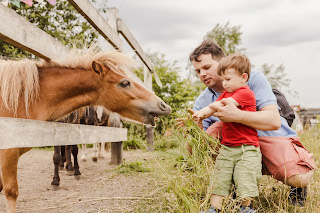Mirrors of Kindness: How Adult Role Models Shape Our Empathy
Empathy isn’t just taught—it’s absorbed. The quiet way adults treated a crying child, a stray animal, or a struggling stranger imprinted on us forever.
Children are empathy sponges. When a parent:
- Stopped to help a turtle cross the road...
- Spoke gently to a fearful dog...
- Listened deeply to a lonely neighbor...
...they weren’t just being kind. They were modeling neural blueprints for compassion. Mirror neurons in our brains fire when we witness empathy, literally shaping how we relate to pain.
But what if your models were flawed? The good news: Empathy is learnable at any age. Start by recalling one positive example:
"My grandpop never passed a homeless person without offering food. He taught me: *Kindness requires action.*
Identify one empathetic adult from your past. What did they model? Journal one way to honor that legacy today.*\
Tag someone who showed you how to love boldly. 👇 Let’s celebrate our empathy mentors!

.jpg)
Comments
Post a Comment
Your comments are welcome!